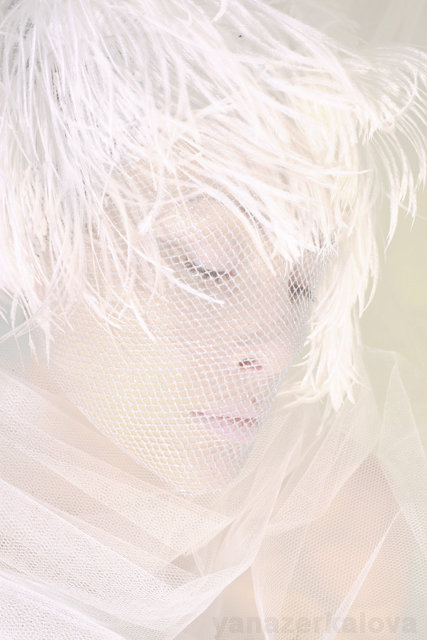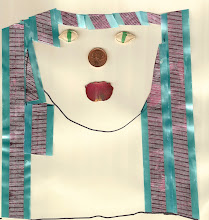
translated by Marshall Hryciuk
It was a mineshaft peculiar to souls.
Like silent seams of silver ore they moved
as veins through the darkness. Between roots
sprung up the blood that issued to humankind
and heavy as porphyry this seemed in the darkness.
Nothing else was red.
 Rocks were there
Rocks were thereand forests lacking substance. Bridges over abysses
and the great, grey, opaque pool
that hangs over its long-distant source
like rainy skies over a landscape.
And between meadows, gentle and forebearing
appeared the pale stretch of a single path
laid out like a cloth strip for blanching.

They came along this very path.
In front, the slender man in the blue cloak
who mutely and without apology looked forward.
With no concern for chewing his step ate up
the path in huge bites, his hands hung
from his garments ungainly and clenched
and no longer knew the delicate lyre
that had grown into his left hand
as rose tendrils do on an olive branch.
And his mind was rent in two:
while his gaze ran on ahead like a canine,
turned round, came back and ever again went
on ahead and stared at the next turn waiting,
his hearing lingered back like an odour.
Sometimes it seemed to him this reached all the way
back to where they both were walking
who would follow him for this whole ascension.
Yet really this was only his own climbing's echo
and the waft of his mantle that closed behind him.

But he said to himself: "They are still coming."
Spoke it aloud and heard it echo away.
They were still coming but both of them
only frightfully slow. If he dared
turn around even once (were not turning around
the destruction of the whole process being accomplished
thus) he would surely see them,
the light-footed couple following him soundlessly.

The god of gateways and far-off messages,
with his helmet down for travel over his bright eyes
a slender staff slung from his body
and wings beating on the ankles of his feet
and to his left hand beholden: her,
The so-beloved, for whom out of one lyre
more sorrow poured than from all sorrowing women;
that became a world of sorrow in which
though everything were still there: forest and lake
and path and village: field, river and beast,
they were yet wholly within this sorrow-world;
as if round this other-earth a sun
and star-filled silent sky revolved,
a sorrow-sky with distorted constellations --
so beloved was she.
But she went by that god's hand
her step restricted by long winding-shrouds
uncertain, gentle and without impatience.
She was within herself, like one whose hopes are high
and thought not at all of the man who strode ahead
nor of this path they were climbing up into life.
She was within herself. And her state of being dead
filled her to completeness.
Like a fruit with sweetness and darkness
she was so full with her great death
so new to her that she grasped nothing.
She was within a new maidenhead
and untouchable; her sex was shut
like a young flower's petals toward evening
and her hands had grown so unused
to marriage that even the gentle god's
infinitely lightly guiding contact
she suffered as a too sudden intimacy.
Already no longer was she the fair-haired woman
that in the poet's song she sometimes echoed,
no longer the scent of the wide bed and its island,
the belonging of that man ahead no longer.
 She was already loosened out like long hair
She was already loosened out like long hairand surrendering like fallen rain
and shared about like hundredfold provisions.
She was already root.
And as abruptly
the god halted her and with anguish in his voice
spoke the words; "He has turned around!"
She grasped nothing but asked softly, "who?"
But in the distance, dark against the shining gateway
someone stood whose features
were not to be recognized. He stood and saw
how on the strip of the meadow-path
with a sorrowful look the god of far-off messages
turned away in silence, the form following
that was already going back its very same way
her step restricted by long winding-shrouds
uncertain, gentle and without impatience.
Rainer Maria Rilke Frankfurt-am-Main
photo of Eurydice in veil by Yana Zerkalova. See more at http://www.facebook.com/pages/PHOTO-ART-by-YANA-ZERKALOVA/112914482063035




It was wonderful to read the text. So thank you for that. And I really liked most of the images except for the "dummy" and the hair. They take more than they give.
ReplyDeleteOtherwise, a fine experience.
Well, I thought that something was necessary to introduce the shock and terror of death, or atleast the sad relation between the living and the dead...and I wanted it contemporary, blending the classical with the contemporary in terms of the images. Since Eurydice is at the centre of the poem, she has to be represented in images, too, but she is hard to find. The images of Eurydice I found on the net were unsatisfactory for various reasons, mainly because they were either archaic or old-fashioned modern. I began by looking for shrouds, veils, etc. But I also wanted a touch of the erotic...a bit macabre, I agree, but you have to try to find the images yourself in order to understand the problem of fitting image to word. You can't get seamless perfection. You get disjunction. Why not try to find some images of Eurydice yourself and send them to me? I'll exchange yours for mine.
ReplyDelete